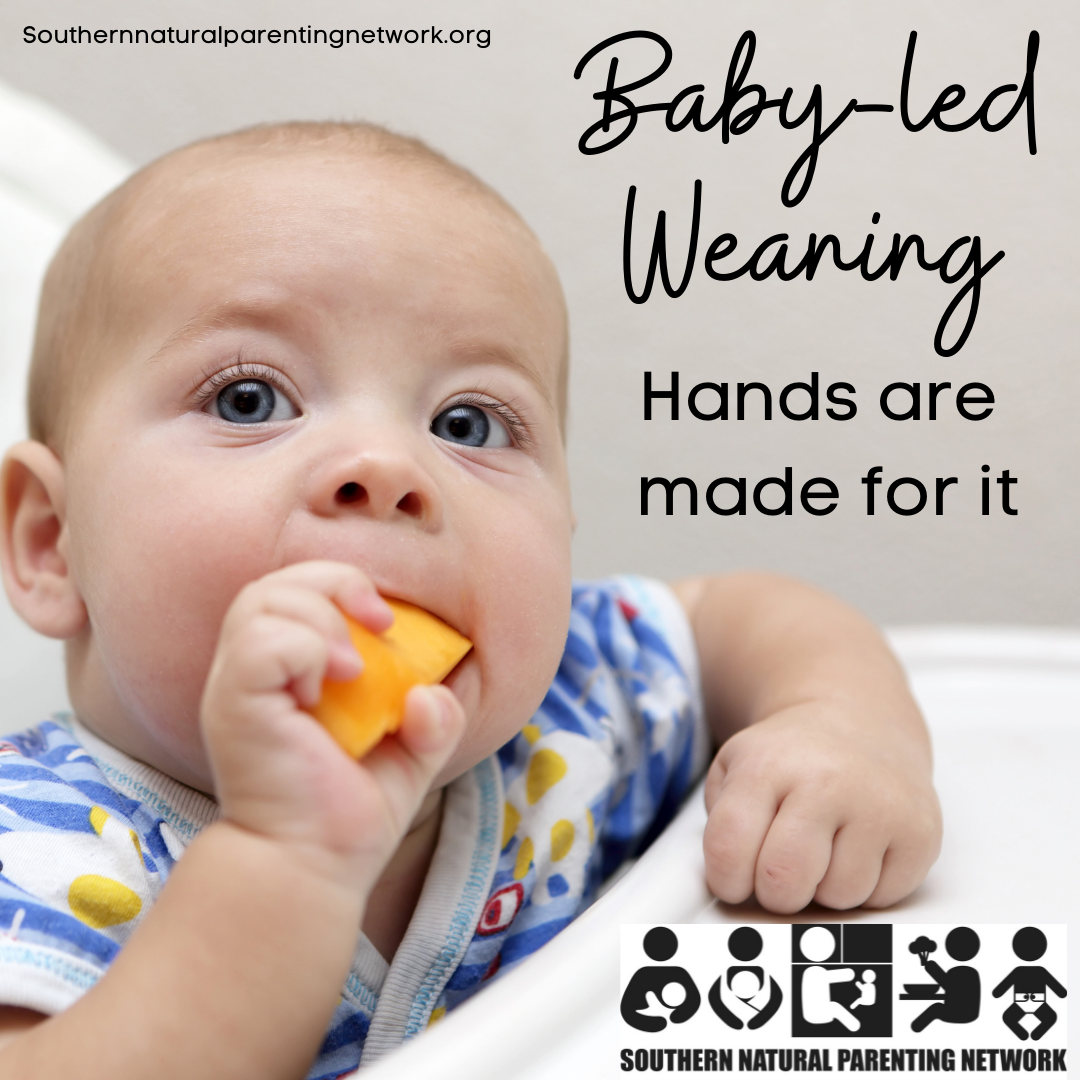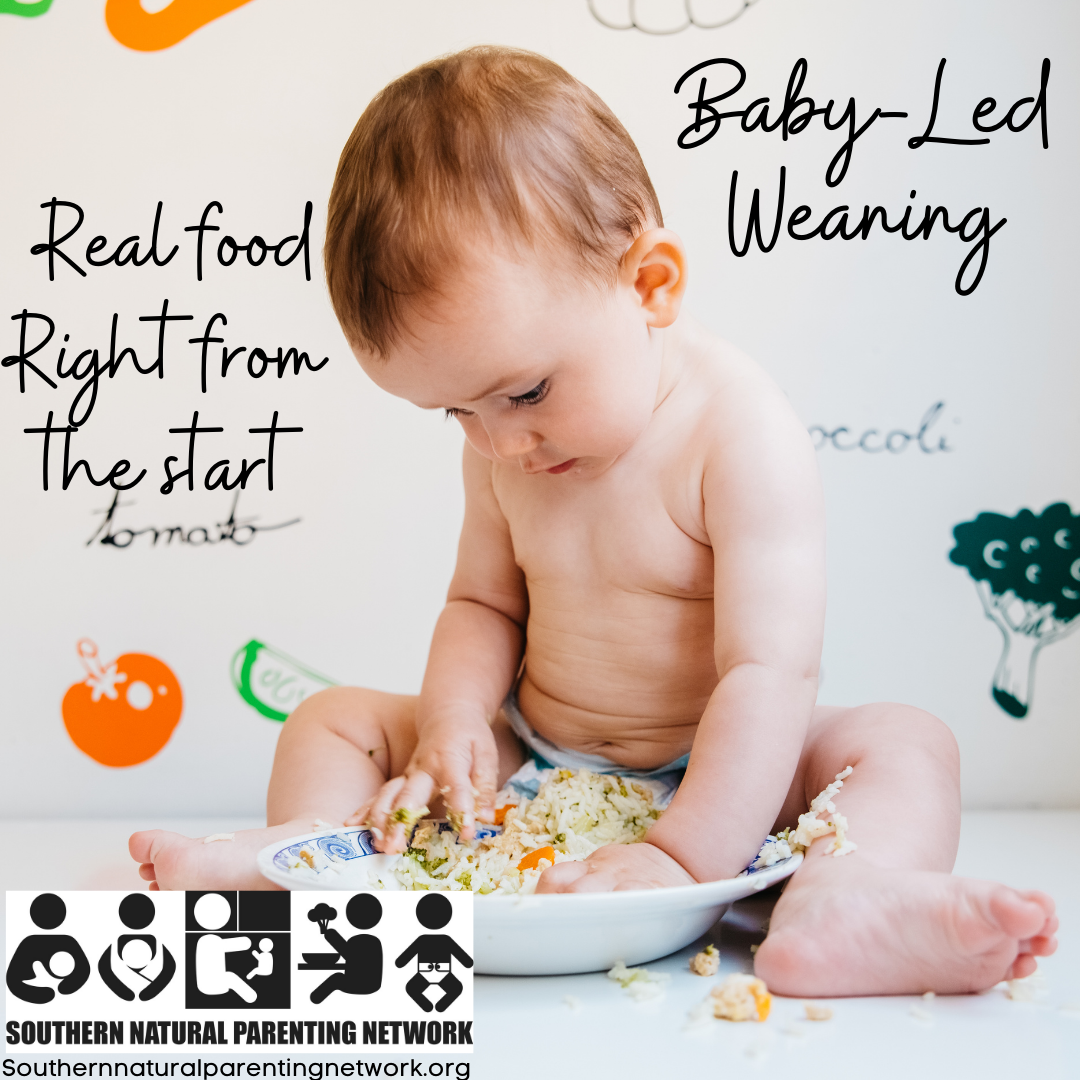Baby-led Weaning
Baby-led weaning is not about weaning babies off the breast but uses the British meaning of weaning onto other foods. Just as weaning from breastfeeding is a gradual process, so is the transition to solids. Baby-led weaning is not a technique but an approach. It is a philosophy that babies do not need to have food processed so it can be fed to them before they are developmentally able to process it for themselves. This ability to bite, chew and swallow their food develops alongside their ability to safely sit upright, hold food in their fist and bring it to their own mouth. Premature introduction of solids requires adults to spoon feed very soft, liquified foods because the infant is not capable of feeding themselves or processing food with their mouth before swallowing.
The recommendations around the age when foods other than milk are introduced has remained at around six months for two decades.
In Australia, it is recommended that infants be exclusively breastfed until around 6 months of age when solid foods are introduced. This is inline with the World Health Organization and the guidelines in nearly all countries.
Baby-led weaning complements breastfeeding and is an educational stage of infant feeding. Breastmilk remains the primary food source into the second year, with family foods gradually contributing nutrition and energy during the second six months of life.
Parents decide which foods to provide to their child but the child determines what they eat and how much they eat, supporting natural appetite control. Adults do not place any food into the baby’s mouth when baby-led weaning.
Foods are prepared as the family eat them, with only practical adaptation to enable the baby to grasp pieces of food. The pincer grip which allows humans to pick up small items between finger and thumb begins to emerge around nine months, prior to this babies use their whole hand to grasp things. So foods are offered in “stick shapes”around the size of an adult finger. Foods eaten by everyone in a liquid form can be offered along side “dippers” - eg: soup with bread sticks, yoghurt with fruit fingers. “Pre-loaded” spoons can be offered for the baby to pick up, hold themselves and bring to their own mouth.
Babies progress through experiencing a range of foods eaten by the family, with reduced-salt the only restriction. Normal food safety for infants remains, with no-honey before the second year and not offering whole nuts, whole grapes, popcorn or other choking hazards.
Breastfeeding continues to be baby-led with no requirement to reduce feeds, offer food before milk or otherwise actively beginning the weaning process. Recommendations to do so are generally based on the need to reduce formula feeding from bottles and transition onto milk from a cup, which is not necessary for infants continuing to breastfeed into the second or third year.
The Problem of Baby Food
But it was the 21st century which brought a new player onto the crowded field: plastic pouches were initially promoted as an easier way to serve soft foods like yoghurt but their popularity soon led them to dominate the baby food aisle. Cans had already lost most of the market to glass jars, which were easier to use and could be resealed (as well as being reusable as small storage in the home and garage!) But glass is breakable, soft plastic is not. Soon pouches took over completely. Parents had even discovered older babies and toddlers could simply suck the contents directly from the pouch, doing away with bowls and cutlery.
Baby-led Weaning plus purees … can you do both?
Baby-led Weaning plus purees … can you do both?
The short answer is - that's not the question. This is where many people get confused, so let's go back to the start:
There are two approaches to introducing solid foods to your baby. Baby-led or Parent-led.
Granny’s Guide to Baby-Led Weaning
If your image of starting babies on solids involves sloppy rice cereal, strained pears and pureed vegetables, then Baby-Led Weaning might come as a bit of a shock!












